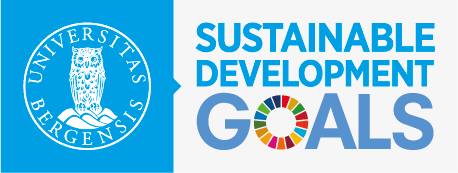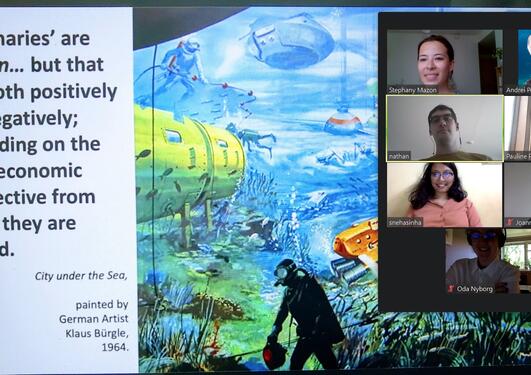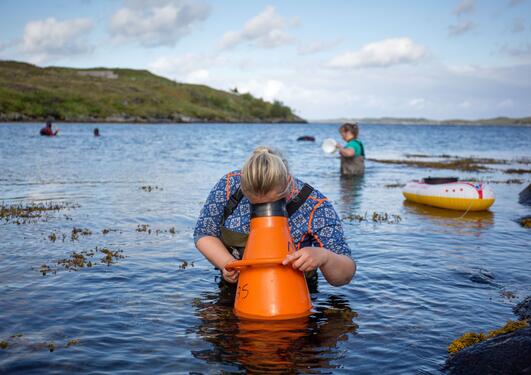Taking water diplomacy to the ocean science decade
At the Diplomacy 2.0 event, Joanna Siekiera from the University of Bergen spoke on the subject of water diplomacy as a field of science diplomacy.

Main content
The Diplomacy 2.0 event took place virtually and was organised by the Polish Forum of Young Diplomats.
“The UN Decade of Ocean Science for Sustainable Development is the defining point in the history of water diplomacy,” said Postdoctoral Fellow Joanna Siekiera from the University of Bergen, “where political declaration, legally binding acts, new technology and advanced research in ocean science are all being employed for the benefit of the whole humankind.”
Roots of science diplomacy
She was one of the speakers at the event, and started off by looking at the roots of science diplomacy.
“Science diplomacy is not a new concept in world history and seeks to strengthen the symbiosis between the interests and motivations of the scientific and foreign policy communities,” she explained.
She mentioned the UN’s Intergovernmental Panel on Climate Change (IPCC) as a prime example of a science diplomacy mechanism.
“Thousands of scientists from all over the world, presenting various disciplines, backgrounds and sharing different experience both in science and very often in politics, contribute to these periodic assessments and review on a voluntary basis, which are then used for global policy discussions,” said Siekiera.
Solving complex global issues
She suggested that the scientific community’s relations with policy-makers is entering a new era with decision-making necessary to solve complex issues in a globalized world.
“Politicians need scientific knowledge more than before, at the beginning of 21st century, full of global challenges, as climate change, migrations, diseases, only to mention a few,” said the law scholar.
Siekiera is herself a researcher in the field of law, dealing with the challenges of regulation of the ocean through the project Mare Nullius, which looks at the particular legal conditions climate change is causing in the Pacific.
“Water diplomacy became a relatively new field of interest in both international relations and building the foreign policy strategy,” she told the audience, “Water is the most influential factor related to food and nutrition, while the water quality, irrigation, scarcity of water can be defining pinpoints in entire existence and survival of a community and its further generations.”
Water is a key global challenge
In summing up her speech, Joanna Siekiera believed that water undeniably is one of the key global challenges of this century.
“States all around the world, gathered in regional grouping or global cooperation under the umbrella of the UN are determined to strengthen its diplomatic engagement on the integrated water management and protection,” she said, “by strengthening the international system, mobilising partners, both public and private, and combining science diplomacy methods in policy dialogue and development cooperation, states promote peace and stability.”
She ended by pointing out that the UN Decade of Ocean Science is a defining point in history for water diplomacy as part of the larger field of science diplomacy.



